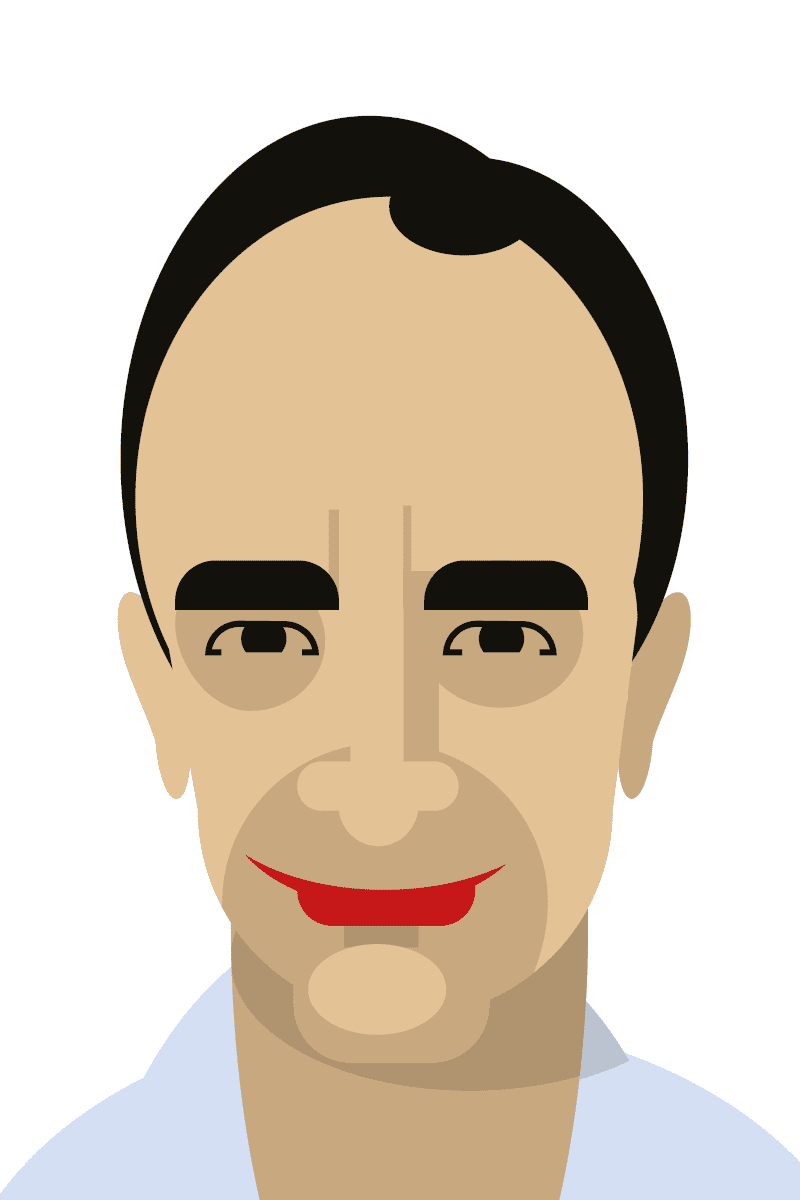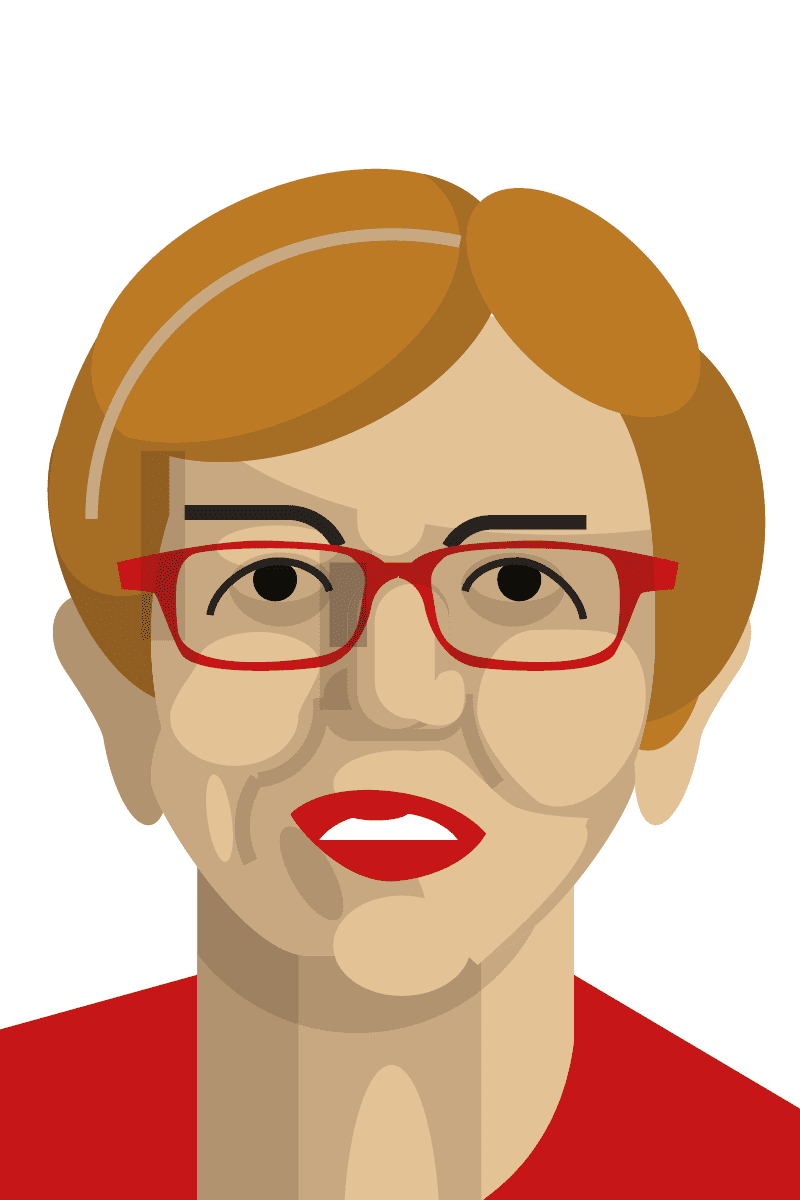 Fernando Carvall“I keep nudging my students and trying to send a positive message”
Fernando Carvall“I keep nudging my students and trying to send a positive message”
I head a laboratory at UFRJ’s Institute of Medical Biochemistry where we research the nervous system. There are 28 of us: 5 postdoctoral fellows, 6 PhD students, 8 master’s students, 6 undergraduates, and the technical staff. It was a shock when UFRJ recommended that our activities be reduced to the essentials only, but we were able to keep our projects running and preserve the most important elements. We are working remotely, but two students go to the lab once a week to complete their work.
Each person in the group has a different story—one lives at home with someone from a high-risk group for COVID-19, another’s home life has been affected by job loss. I created a Zoom account and I am trying to keep everyone active. We discuss papers currently being written; we get together to sing happy birthday when it is someone’s birthday. I give the students little nudges, forward them interesting articles. I try to send a positive message and show that we are all in the same boat. But I do worry, because some are not responding to my emails.
I have three daughters. The older two are working from home, but my youngest, who is 11 and studying online, needs more attention. I also have to spend some time doing housework every morning. I have been waking up at dawn to give myself some time to work in peace. It gives me a few more productive hours. I take a nap in the early morning, and then the day goes on.
Fernanda de Felice is a professor at the Institute of Medical Biochemistry (IBQM) at the Federal University of Rio de Janeiro (UFRJ) and leads an Alzheimer’s research group.
Testimonial taken by Fabrício Marques
***
 Fernando Carvall “This clinical trial has been an intense emotional experience”
Fernando Carvall “This clinical trial has been an intense emotional experience”
One of the first articles on COVID-19 showed that underlying conditions associated with hypertension and diabetes were linked to unfavorable outcomes in patient symptoms. These diseases are on the obesity spectrum, our subject at the Center for Research on Obesity and Comorbidities [OCRC], which I coordinate at UNICAMP. In February we started looking for links between our research and the new disease. I saw an opportunity to study
bradykinin. It’s a substance the body can produce in large quantities in response to inflammatory processes. There are cases in which pulmonary inflammation has led to death within a few hours in patients with COVID-19. Our hypothesis is: if we inhibit the action of bradykinin, lung inflammation may decrease.
FAPESP held an emergency research-funding call and our project was approved. Our study protocol determines that the trial should be conducted with critically ill patients. One group receives a drug that inhibits one of the bradykinin receptors. Another group takes a bradykinin synthesis inhibitor. And the third, the control group, receives only the standard treatment. 30 patients will be evaluated.
I have previously participated in clinical trials, but this is different. The doctors know they are subject to being infected. It can be an intense emotional experience. Our team was already assembled when one student decided to quit their residency and one postdoc decided not to participate because they didn’t feel prepared to face the stress. The commitment and personal stories of those working on the project are quite moving.
Licio Velloso is a professor at the School of Medical Sciences at the University of Campinas (FCM-UNICAMP) and coordinator of the Obesity and Comorbidities Research Center, one of the 17 Research, Innovation, and Dissemination Centers (RIDC) supported by FAPESP.
Testimonial taken by Fabrício Marques
***
 Fernando Carvall“I set up a small table in my home office and work in the company of my 4-year-old daughter”
Fernando Carvall“I set up a small table in my home office and work in the company of my 4-year-old daughter”
The first days of sheltering in place were the most difficult for me. As a researcher at the Genomics for Climate Change Research Center (GCCRC), a collaboration between the Brazilian Agricultural Research Corporation (EMBRAPA) and UNICAMP, my work helps to improve and adapt maize genetics to climate change. My university’s announcement in March that research activities would be halted came as a shock. The first thing I did was head to the supermarket. I worried that stores could close and my initial reaction was to secure a survival stock of food.
The first days at home were not very productive. I was distracted by the news and by conversations with colleagues about the pandemic. But I gradually settled into a new routine. My husband is a professor at the Federal University of Maranhão, where classes were suspended. He came to stay with us in Campinas and has helped with household chores. We have a 4-year-old daughter, who is often at my side during team meetings. I set up a small table near my desk where she keeps me company. I need to set time aside to help her with school activities. Two days a week, her school sets up virtual meetings and she gets to see her friends and teacher online.
I still go to the lab in person every other day. I am currently working on a platform to develop drought- and heat-resistant crop cultivars. Because our experiments cannot be left unattended, I take turns with a postdoctoral student and a doctoral student to tend to the plants and experiments. Our laboratory has more than 20 staff, but only two are allowed to be at the lab at any given time. Those planning a visit to the lab need to book time in advance.
Juliana Teixeira Yassitepe is a researcher at EMBRAPA Agricultural Informatics and works at the Genomics for Climate Change Research Center (GCCRC), a collaboration between EMBRAPA and the University of Campinas (UNICAMP).
Testimonial taken by Fabrício Marques
***
 Fernando Carvall“Music has helped me to cope with sheltering in place”
Fernando Carvall“Music has helped me to cope with sheltering in place”
As a professor at the University of Alabama, I am currently doing research on a fungal disease that is causing a decline in amphibian populations and is linked to deforestation. My research is focused on the Atlantic Forest in the state of São Paulo and parts of Rio Grande do Sul, my home state. I came to the US in 2017 and am currently in that five-year probation period in which a researcher needs to put in a lot of effort to get funding for and publish cutting-edge research. Working at home puts us under all the more pressure. My wife, Mônica Kersch-Becker, who is also a biologist, serves as a professor at the same university and is in the same situation as mine.
The pandemic broke out as we were preparing project proposals to submit to funding agencies. When our laboratories were closed, we took our work home and set up our computers in the bedroom. But we hardly ever spend time working together. She works in the morning while I take care of our two children—a boy of 7 and a girl of 4. In the afternoon it is my turn at the computer.
Music has helped me to cope. I have previously played in a band in my home state in Brazil, and decided to take up composing again during the stay-at-home period, collaborating online with friends. I had just secured funding from the National Science Foundation for a research project on climate change, so I wrote a song about the impacts from deforestation on biodiversity and about the risk of pandemics. I learned to use video editing software and created my own video clip.
Guilherme Becker is an assistant professor in the Department of Biological Sciences at the University of Alabama.
Testimonial taken by Fabrício Marques
***
 Fernando Carvall “With the health crisis, the concept of social cohesion has become more vital”
Fernando Carvall “With the health crisis, the concept of social cohesion has become more vital”
I never imagined being so busy during a quarantine! In the past two months, I’ve had to cancel ten trips. Now all my meetings are being held online. The challenge has been to reconcile all of this with my intensive work routine. I am vice president of the International Science Council [ISC]. As part of the ISC’s activities, I have participated on a variety of fronts. One involves an international commission that discusses current problems, including the vulnerabilities that will arise as a result of the pandemic. As a social scientist, at this forum I usually propose reflections related to income, work, and education. In Brazil, where there are many precarious workers, I thought of the vulnerable as being informal workers or people without access to education.
But now I’m seeing people in the middle class have also become vulnerable. There will be large numbers of people who will lose jobs and income, forcing them to change their lifestyles. In addition to vulnerabilities, the ISC has been discussing issues involving social cohesion and resilience. The latter is a concept that I don’t like very much, but it’s being used to address the situations of societies within the context of the pandemic. Before COVID-19, there were already signs of increasing political polarization and populism throughout the world. The health crisis broke out in the midst of this panorama, making the idea of social cohesion even more vital. How do we keep society cohesive in the midst of so many challenges? We are studying this problem, to understand which variables affect the degree of social cohesion in societies.
Political sociologist Elisa Reis is a tenured professor at the Federal University of Rio de Janeiro (UFRJ).
Testimonial taken by Christina Queiroz
***
 Fernando Carvall “While in isolation, I am coordinating the search for drugs against coronavirus”
Fernando Carvall “While in isolation, I am coordinating the search for drugs against coronavirus”
Since I’m over 60 years old, I began social isolation in March. Even without going to the São Carlos Institute of Physics at USP, I continue to coordinate the Innovation Center in Biodiversity and Pharmaceuticals, CIBFar. I’m on WhatsApp all day with the team working in the laboratory, which consists of three postdoctoral interns and two doctoral students. I also keep in touch with the 15 researchers associated with CIBFar who work at other universities and USP units. At home, I’m constantly reviewing the literature on the new coronavirus, which is in constant change.
The focus of CIBFar is to develop new drugs, and we’re engaged in one project—supported by FAPESP—which seeks to identify antiviral compounds to treat COVID-19 patients. We want to find molecules that can interact with the proteins that the SARS-CoV-2 virus uses to replicate. We are testing a large library of molecules to see if any of them will block the functioning of any of these proteins.
I live on a little rural property in São Carlos. Since there isn’t much traffic nearby, I can ride my bike. There was a person who helped to take care of the house twice a week, but they’re no longer coming to work. I like cooking and doing the dishes every day. My wife, who is secretary of the board of the Institute of Physics at USP, goes in to the university a few times a week. Whenever she leaves, she does the shopping. I’m retired, but I stayed on at USP as a senior professor. In 2019, I gave one undergrad course, but this semester my only commitment is research.
Glaucius Oliva is a senior professor at the São Carlos Institute of Physics at USP and coordinates the Center for Innovation in Biodiversity and Pharmaceuticals, one of the 17 Research, Innovation, and Dissemination Centers (RIDC) funded by FAPESP.
Testimonial taken by Fabrício Marques
Republish
